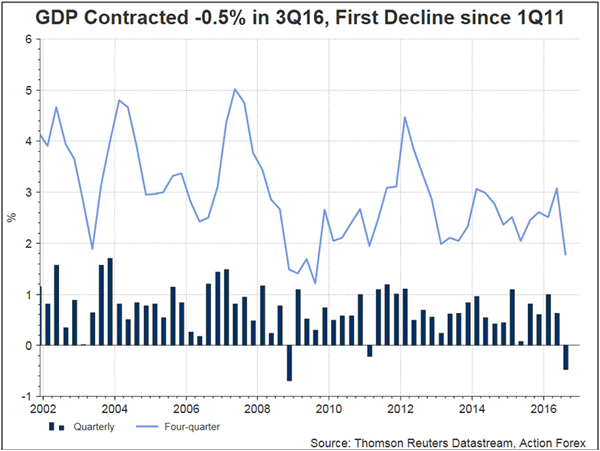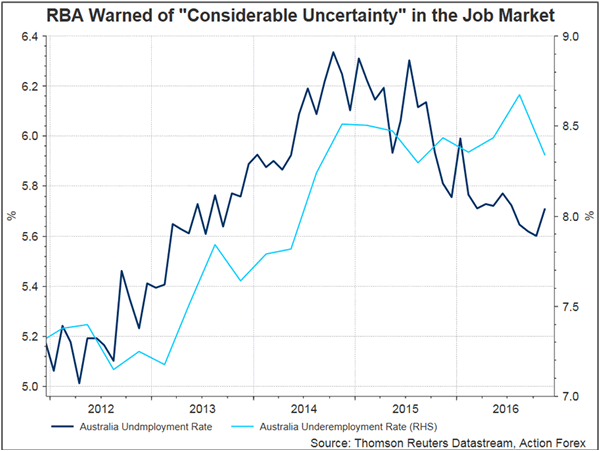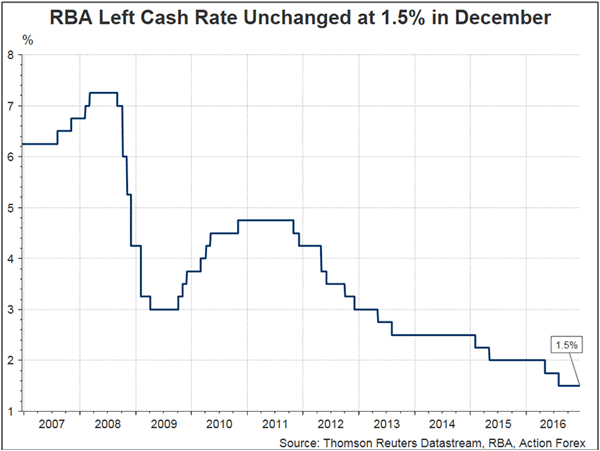RBA in its minutes for the December meeting cautioned the high levels of household debt due to low interest rates. It also warned of the ‘considerable uncertainty’ in the labor market. The central bank maintained a neutral bias at the meeting while leaving its cash rate unchanged at historic low of 1.5%. Note the meeting was held a day before the release of 3Q15 GDP growth which shrank -0.5%.
The minutes unveiled that policymakers were concerned about the ‘high levels’ of household debts. As suggested in the minutes, the ‘members discussed the effect of lower interest rates on asset prices and the decisions by households to borrow, particularly given the already high levels of household debt’. It added that ‘the Board had sought to balance the benefits of lower interest rates in supporting growth and achieving the inflation target with the potential risks to household balance sheets. Members recognized that this balance would need to be kept under review’.
Another area of concerns was on the employment market. Despite the recent decline in the unemployment rate, the members acknowledged that ‘all of the growth in employment over 2016 had been in part-time employment’. They also noted that ‘wage growth had remained low and continued to be lower than implied by the historical relationship with the unemployment rate’. There was still considerable uncertainty about the momentum in the labour market.
Australia’s GDP contracted -0.5% q/q in 3Q16. It was the 4th time of economic contraction in the country in 25 years. The December RBA meeting was held a day before the release of the report. We look forward to the February meeting which would be the first meeting that the RBA would react to the contraction.
On global economic developments, RBA discussed the problem of capital outflow in China and the FOMC rate hike. While FOMC rate hikes might worsen the capital outflow issue in China and other emerging economies, it might help alleviate RBA’s concerns over strong Australian dollar.



